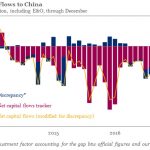The year 2015 has so far been quite patchy for junk bond ETFs. The space delivered a listless performance in 2014 and continues to be a drag this year. Stubbornly low oil prices from the second half of the last year wrecked havoc on the space.
The reason behind the massacre was that U.S. energy companies are highly tied to the high-yield bond market with the former making up about 15% of junk bond issuance, per CNBC. Thus, fears of their default amid the oil price rout triggered the junk bond sell-offs. Though oil prices staged a 25-years high three-day rally at August’s end, there was no relief for junk bonds and the related ETFs (read: Junk Bond ETFs–Unfortunate Victims of the Oil Crash?).
Forget about relief, Moody’s Liquidity Stress Index, which calculates the stress quotient in the high-yield bond market, rather grew to 5.1% in August from 4.3% in July. The rise in stress was the ‘highest since December 2010’ as the oil and gas sector witnessed a spike in negative revisions and defaults. Not only oil, the junk bond market has considerable exposure in another stressed investing area, metal and mining, per CNBC.
S&P also downgraded the seven high-yield oil and gas sector issuers last month and cited three defaults. As per MarketWatch, the high-yield sector underwent the cruelest month since last September (read: Assets Swing To and Fro Junk Bond ETFs).
Moreover, the Fed emphasized the strong U.S. growth momentum in the second half of 2015 that alternatively hints at the start of policy tightening sometime this year. In fact, bets over the lift-off in this month’s Fed meeting is quite high at this point of time. The exit from the rock-bottom interest rate policy would raise yields on the treasury notes, thereby fading the sole lure of the high-yield bonds.
If this was not enough, junk bonds are often considered equivalent to stocks. As the global stock market saw a tumultuous ride in August and investors embraced safe havens, junk bonds started to lose their appeal. As per industry experts, hazards in overall commodity space spilled over the other asset-based junk bonds on general distaste for risk.
In the past one-month period (as of September 2, 2015), junk bond ETFs including AdvisorShares Peritus High Yield ETF (HYLD), SPDR Barclays High Yield Bond ETF (JNK – ETF report), BulletShares 2020 High Yield Corporate Bond ETF (BSJK) and Global High Yield Corporate Bond Fund (GHYG) performed miserably.












Leave A Comment